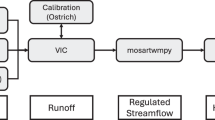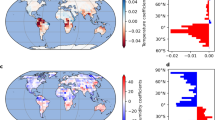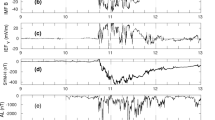Abstract
PROF. ARMSTRONG'S friendly criticism (NATURE, October 13, p. 537) of my theory of the origin of electricity in thunderstorms seems to neglect the fact that my explanation of thunderstorms is based entirely upon experimental and observational evidence. If experiments can be said to prove anything, then my work and the work of others has shown conclusively that: (a) if there are ascending currents exceeding 8 metres per second in the atmosphere, there must be a great deal of breaking of rain drops; (b) every time a water drop breaks there is a separation of electricity; (c) the broken water drops retain a positive charge; (d) the air attains a negative charge. On the other hand, observations have shown that there is a considerable excess of positive electricity brought down by rain. These are all tangible facts which any one can test by making the suitable experiments, and I have done nothing more than arrange them into such a form that a reasonable account of the phenomena of thunderstorms results.
This is a preview of subscription content, access via your institution
Access options
Subscribe to this journal
Receive 51 print issues and online access
$199.00 per year
only $3.90 per issue
Buy this article
- Purchase on SpringerLink
- Instant access to the full article PDF.
USD 39.95
Prices may be subject to local taxes which are calculated during checkout
Similar content being viewed by others
Author information
Authors and Affiliations
Rights and permissions
About this article
Cite this article
SIMPSON, G. Problems of Hydrone and Water: the Origin of Electricity in Thunderstorms. Nature 112, 620 (1923). https://doi.org/10.1038/112620a0
Issue date:
DOI: https://doi.org/10.1038/112620a0



